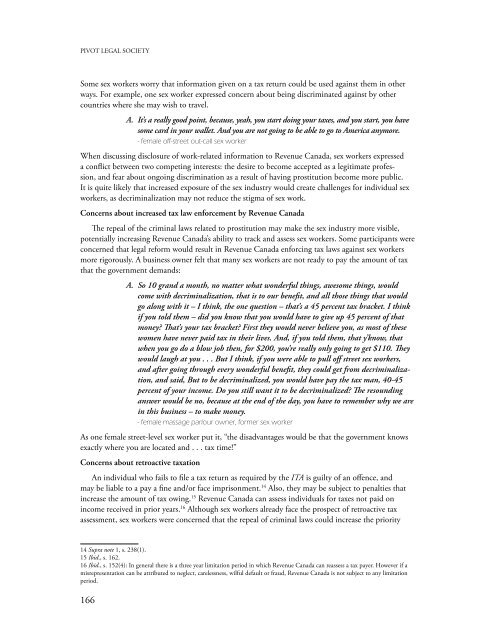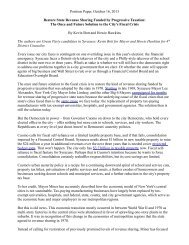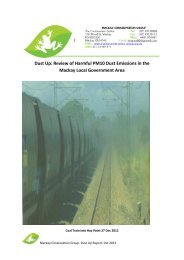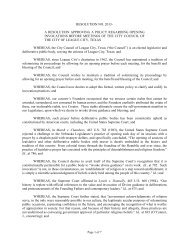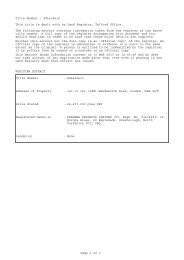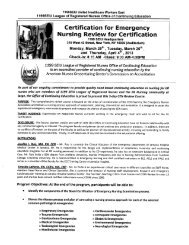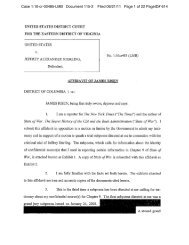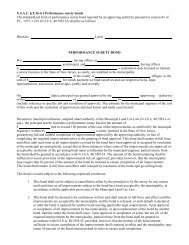Beyond Decriminalization: Sex-work, Human Rights and a New ...
Beyond Decriminalization: Sex-work, Human Rights and a New ...
Beyond Decriminalization: Sex-work, Human Rights and a New ...
- No tags were found...
You also want an ePaper? Increase the reach of your titles
YUMPU automatically turns print PDFs into web optimized ePapers that Google loves.
PIVOT LEGAL SOCIETYSome sex <strong>work</strong>ers worry that information given on a tax return could be used against them in otherways. For example, one sex <strong>work</strong>er expressed concern about being discriminated against by othercountries where she may wish to travel.A. It’s a really good point, because, yeah, you start doing your taxes, <strong>and</strong> you start, you havesome card in your wallet. And you are not going to be able to go to America anymore.- female off-street out-call sex <strong>work</strong>erWhen discussing disclosure of <strong>work</strong>-related information to Revenue Canada, sex <strong>work</strong>ers expresseda conflict between two competing interests: the desire to become accepted as a legitimate profession,<strong>and</strong> fear about ongoing discrimination as a result of having prostitution become more public.It is quite likely that increased exposure of the sex industry would create challenges for individual sex<strong>work</strong>ers, as decriminalization may not reduce the stigma of sex <strong>work</strong>.Concerns about increased tax law enforcement by Revenue CanadaThe repeal of the criminal laws related to prostitution may make the sex industry more visible,potentially increasing Revenue Canada’s ability to track <strong>and</strong> assess sex <strong>work</strong>ers. Some participants wereconcerned that legal reform would result in Revenue Canada enforcing tax laws against sex <strong>work</strong>ersmore rigorously. A business owner felt that many sex <strong>work</strong>ers are not ready to pay the amount of taxthat the government dem<strong>and</strong>s:A. So 10 gr<strong>and</strong> a month, no matter what wonderful things, awesome things, wouldcome with decriminalization, that is to our benefit, <strong>and</strong> all those things that wouldgo along with it – I think, the one question – that’s a 45 percent tax bracket. I thinkif you told them – did you know that you would have to give up 45 percent of thatmoney? That’s your tax bracket? First they would never believe you, as most of thesewomen have never paid tax in their lives. And, if you told them, that y’know, thatwhen you go do a blow job then, for $200, you’re really only going to get $110. Theywould laugh at you . . . But I think, if you were able to pull off street sex <strong>work</strong>ers,<strong>and</strong> after going through every wonderful benefit, they could get from decriminalization,<strong>and</strong> said, But to be decriminalized, you would have pay the tax man, 40-45percent of your income. Do you still want it to be decriminalized? The resoundinganswer would be no, because at the end of the day, you have to remember why we arein this business – to make money.- female massage parlour owner, former sex <strong>work</strong>erAs one female street-level sex <strong>work</strong>er put it, “the disadvantages would be that the government knowsexactly where you are located <strong>and</strong> . . . tax time!”Concerns about retroactive taxationAn individual who fails to file a tax return as required by the ITA is guilty of an offence, <strong>and</strong>may be liable to a pay a fine <strong>and</strong>/or face imprisonment. 14 Also, they may be subject to penalties thatincrease the amount of tax owing. 15 Revenue Canada can assess individuals for taxes not paid onincome received in prior years. 16 Although sex <strong>work</strong>ers already face the prospect of retroactive taxassessment, sex <strong>work</strong>ers were concerned that the repeal of criminal laws could increase the priority14 Supra note 1, s. 238(1).15 Ibid., s. 162.16 Ibid., s. 152(4): In general there is a three year limitation period in which Revenue Canada can reassess a tax payer. However if amisrepresentation can be attributed to neglect, carelessness, wilful default or fraud, Revenue Canada is not subject to any limitationperiod.166


